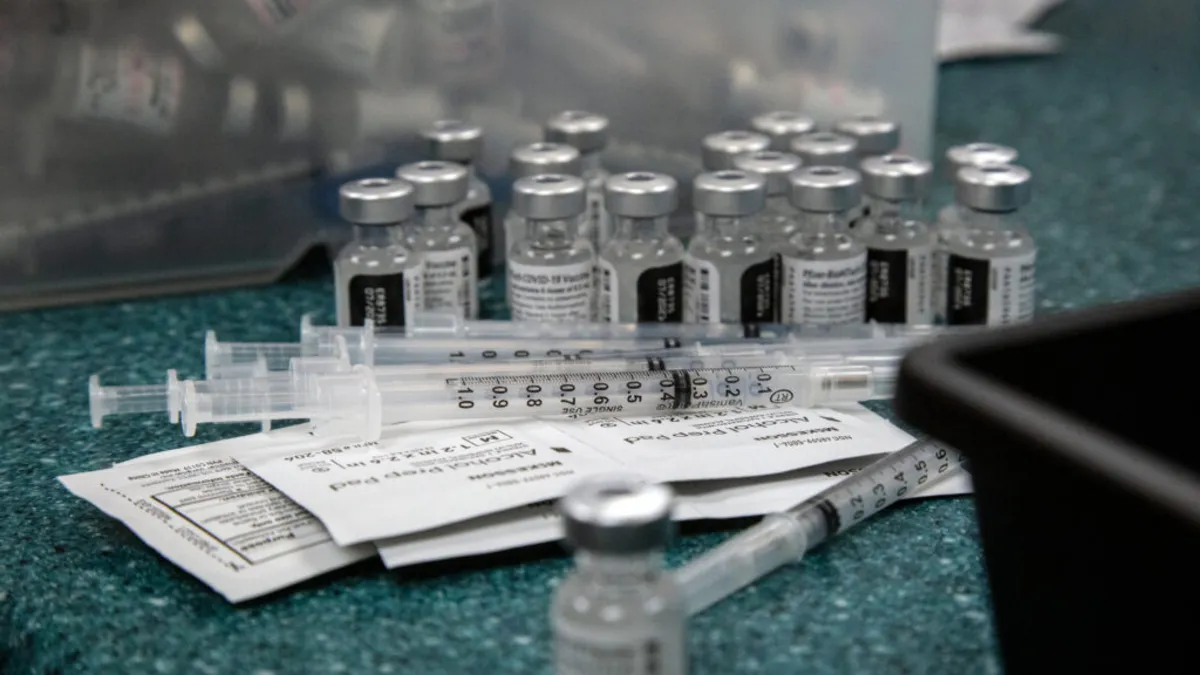
On Wednesday, the Food and Drug Administration (FDA) approved updated COVID-19 booster shots while simultaneously revoking emergency use authorizations for these vaccines. This significant decision raises concerns about the accessibility of vaccines, particularly for children under the age of 5. The announcement was made by Robert F. Kennedy Jr., the Secretary of Health and Human Services, via a post on the social media platform X, with no official statement from the FDA.
Kennedy framed the FDA's actions as a fulfillment of his campaign promises aimed at reversing COVID-era policies while maintaining vaccine availability for those who desire them. In his post, he outlined four primary commitments: ending COVID vaccine mandates, ensuring vaccines remain available for vulnerable populations, demanding placebo-controlled trials from manufacturers, and terminating the emergency status. "In a series of FDA actions today, we accomplished all four goals," he stated.
According to Kennedy, the COVID vaccine authorizations for all three available vaccines will now be limited to higher-risk individuals, including those over the age of 65 and those with risk factors for severe COVID-19 outcomes. The updated approvals specify that:
The Moderna vaccine is approved for individuals older than 6 months. The Pfizer/BioNTech vaccine is available for those over 5 years old. The Novavax shot is now for individuals older than 12.Both Pfizer and Moderna confirmed their booster shots' approvals in separate statements, emphasizing that the vaccines would be accessible to patients after consultations with their healthcare providers. Kennedy remarked, “The American people demanded science, safety, and common sense. This framework delivers all three.”
The recent federal decisions may limit access to the Pfizer COVID-19 vaccine for children under 5 years old. Previously, this vaccine was available for children as young as 6 months through emergency use authorization. The new restrictions may complicate efforts for healthy children in this age group to receive COVID vaccinations this fall.
While the FDA approved the Moderna vaccine for children as young as 6 months in July, it was only for those with underlying health conditions. The Pfizer vaccine, developed in collaboration with BioNTech, was considered the primary option for parents seeking to vaccinate their young, healthy children against COVID-19.
There is uncertainty regarding how willing healthcare providers will be to administer Moderna's shot to young children off-label, as well as whether insurance companies will continue to cover these immunizations. Some officials, including FDA Commissioner Marty Makary and vaccine regulator Vinay Prasad, have argued that the risks associated with COVID vaccines may outweigh their benefits for healthy children, leading to low vaccination rates among both children and adults in recent years.
The American Academy of Pediatrics (AAP) expressed concern over the FDA's new framework, labeling it “deeply troubling” and advocating for the availability of vaccines for all children aged 6 months to 23 months. Data presented to the CDC in June indicated that infants are more likely to be hospitalized due to COVID compared to older children.
As part of the new approvals, the FDA is mandating several clinical trials for Pfizer’s vaccines, having previously imposed similar requirements on Moderna. Pfizer announced that it would begin shipping its vaccines immediately, ensuring a solid supply to pharmacies, hospitals, and clinics nationwide. Moderna also promises that its updated vaccines will be available within days.
“Protecting people at increased risk of severe outcomes from COVID-19 is imperative to public health,” said Stéphane Bancel, CEO of Moderna, highlighting the necessity of the updated vaccines as COVID-19 is responsible for millions of outpatient visits and hospitalizations annually.
The recent federal actions reflect a shift in vaccine policy, creating a landscape where parents and healthcare providers must navigate conflicting recommendations when deciding on vaccinations for children. Following the AAP's recommendations for vaccinating all children between 6 months and 23 months, Kennedy criticized the organization for accepting donations from pharmaceutical companies, further complicating public discourse on vaccine safety and efficacy.
As the FDA continues to evolve its approach to COVID-19 vaccines, the implications of these changes will be closely monitored by both health experts and the public.